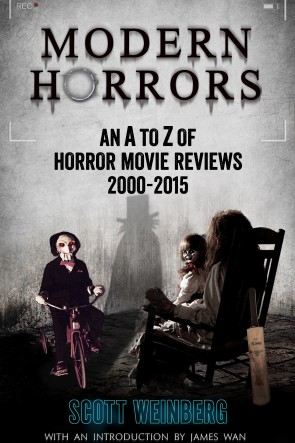Retro Review: LOVELY MOLLY (2012){0}
One day (very soon) I’m going to write an article about the large number of surprisingly insightful male directors who make horror films about women. On that list I’d mention films like May, The Descent, Teeth, Grace, and recent Sundance flicks like Excision (reviewed here) and Eduardo Sanchez’s Lovely Molly. That’s not to say that these films offer any definitive answers on the various mysteries of the female animal, but that I find it very cool and highly provocative when a film like Inside, for example, comes from writer/directors who are men. (The flip-side to this equation is that, unfortunately, well, we need to see more female horror directors. Period.)
Unexpectedly moving as a character study, and resoundingly creepy as an ambiguous yet accessible horror tale, Lovely Molly is easily Eduardo Sanchez’s coolest creeper since he hit the scene, loudly, back in 1999 with The Blair Witch Project. Although it certainly does lean on the “slow burn” side of the scale, Sanchez and co-screenwriter Jamie Nash find several ways to balance indie-style angst and tragedy with a nice, healthy balance of dark, disturbing horror. It doesn’t hurt that lead actress Gretchen Lodge is more than capable of handling this unquestionably difficult role, but what’s most appealing about Lovely Molly is the way it doles out its best ideas and moments with a strong sense of restraint, timing, and impact.
It’s a pretty simple tale on the surface: the lonely young wife of a long-distance truck driver, Molly spends a lot of time by herself, which isn’t great news since she and her absentee husband have recently returned to live in Molly’s old family home. (Suffice to say that bad things once happened there.) Over the course of Lovely Molly‘s deliberate but compelling first hour, the film is most interested in its main character. Is she going crazy? Are ghosts from the past haunting this house? Does Molly’s unpleasant past involving drug abuse have something to do with all this? Are these freaky visions actually happening, or is Molly simply trapped with a downward emotional spiral?
It all sounds potentially dry and slightly familiar, right? At first glance, perhaps, but Lovely Molly is at its best once the premise is laid down, once we’ve grown a touch of sympathy for Molly’s bleak-yet-juicy travails, and once Mr. Sanchez has doled out every possible perspective for his main character, leaving him only the avenues of darkly satisfying creepiness. One clear interpretation of Lovely Molly has to do with the lasting damage that child abuse, drug addiction, and simple misery can foist upon the human soul, but there are also a few dashes of tasty ambiguity, and those always manage to turn a decent horror story into something a bit more memorable.
At its best and bravest moments, Lovely Molly taps into a few universal truths about humanity, and it’s the horror genre that allows such personal, uncomfortable, potentially distasteful themes to be tackled in such a frank and effective manner. Yes, Lovely Molly is a true slow-burn horror flick, but it’s never a basic or boring one. The first hour does deliver a lot of quiet character moments, but Sanchez keeps offering several hints of the horrors to come — and since Act III is packing some seriously satisfying moments, you’ll probably end up grateful for those few extra moments of character development. Smart, dark, tragic and spooky, Lovely Molly may not be a slam-bang horror flick, but it still remains a very good one.








